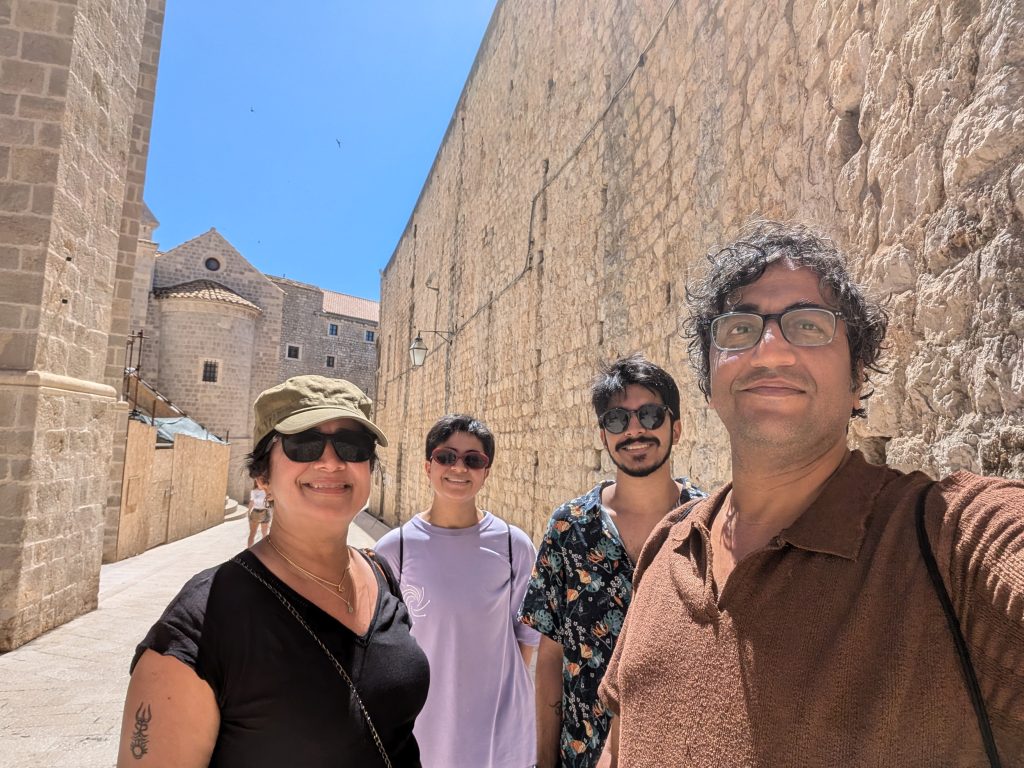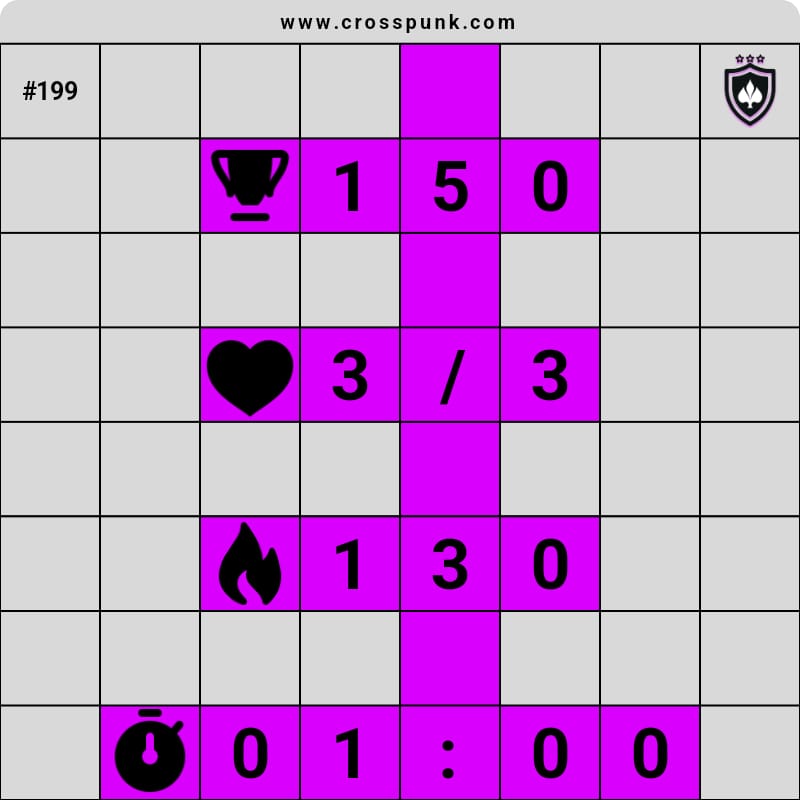Apurv Nagpal, PGP 93
As someone who grew up in the pre-internet and pre-smartphone era, my childhood was spent playing games on notebooks like Hangman or Tic Tac Toe or even a couple of board games like Monopoly or Scrabble (considered our family game) that we could afford. Somehow, I never really got into video games. Not the ones which came in arcades during the 80s (PacMan, Space Invaders), not the ones played on current mobile phones (Candy Crush, Solitaire etc, which keep my Mom happily busy) and definitely not the ones played on the consoles / laptops (FIFA, Call of Duty etc – my son loves them).
For me, physical games which teased the intellect – quizzes, MasterMind, even Pictionary and Dumb Charades – held a far greater attraction than anything in the virtual world. Playing Scrabble online is about as far as I got – but found it was taking up too much time, also encountered a couple of over-competitive folks, so I left it after a couple of months.
Then came Wordle, during the pandemic, and it seemed like a match made in heaven. It only took up a few minutes, there was only one a day so you couldn’t spend too much time and it tested your vocabulary (confession – I’m from the generation who grew up with ‘It Pays To Enrich Your Word Power’ in Readers Digest). All was perfect at first, but then you started to observe the flaws. Only five letter words. And sometimes, when you got 2-3 alphabets in the first or second word, you realised there could be at least 10 solutions but were clueless which one would be the right one. Once that happened a few times, I began taking breaks from the game, became an intermittent player instead of a regular.
Out of the blue, one night, while sleeping, it was like my entire childhood coalesced in my dreams and I woke up with the idea of a completely new game. It was like a mishmash of so many things – a crossword, HangMan, Player levels, a timer and a score. And a new theme everyday, so that if there was a word where you knew a couple of characters, you weren’t shooting in the dark.
As I teach my students in my innovation course (INL) at IIM-A, getting an idea is the easy part – only 5% of the job. Getting it out there is the tougher 95%. Once I got my kids’ positive thumbs up, we decided we are going for it. My 24-year old son Anvam, helped build a prototype on excel, using AI to write the cell formulae, and after a few test runs with the wife, kids and close family and friends, we were convinced that we were onto something. Hiring developers for something you’re doing just for fun isn’t easy either – that process took a couple of months, before finally finding someone in Pune who took it forward. The interesting conversation here was they couldn’t understand I was doing it only for fun – they kept asking for the subscription model, payment facility etc
We’ve had CrossPunk live for a couple of months now. As a practitioner of innovation, I made sure there were several in the game. Player lives, levels, customised leaderboards (so you could have separate ones for friends, colleagues, family), a daily theme (we’ve had some fantastic ones, from dating sites to clocks to desserts to musical instruments), changeable background music, games via contributors – have had over 20 people contribute a game over the last couple of months alone (and they get credit at the beginning of the game), a scoring algorithm that changes as per your player level etc
Surprisingly, for me at least, we’ve found that the stickiness is highest in the older age group–those 40 and above. My kids assure me that the younger ones have more exciting things to do. Also, I saw that the traction amongst my students was quite low (they’d fall in the 25-35 category). I also realised that most people have a portfolio of games they play, usually 2-4, and it’s very hard to get into that exclusive club.
Finally, I’d like to encourage everyone to go ahead and bring their ideas to life. I’ve chosen not to advertise so far. It’s delightful to see it grow organically and to see how the community of regular players and contributors is developing. I had experienced the same happiness when I began writing my blog on movie reviews in 2006 (before blogs were a thing) and now my wife and I do video reviews on my YouTube channel. I noticed quite a few students have ideas / passion for various topics, but get stuck on questions around ROI, whether it will grow, how many users it will have etc. My perspective on all of these is, if the investment is affordable, to just do it. And if the investment isn’t, to find a way to do it on a smaller scale. Whether users come or not, if it’s something you enjoy doing, it’s going to be something to look forward to anyways. Buy into the Bhagavad Gita philosophy of doing the karma, not worrying about the fruit. And remember, the ROI on something that brings you joy, is infinite.

Apurv Nagpal, PGP’93, has been Visiting Faculty at IIM-A, teaching innovation, since 2014. He retired at 41, after two decades of corporate life. More about him, the game, his movie reviews and travels at https://apurvnagpal.com/



